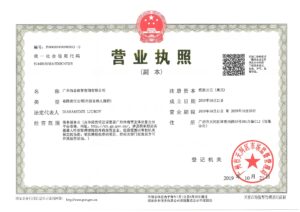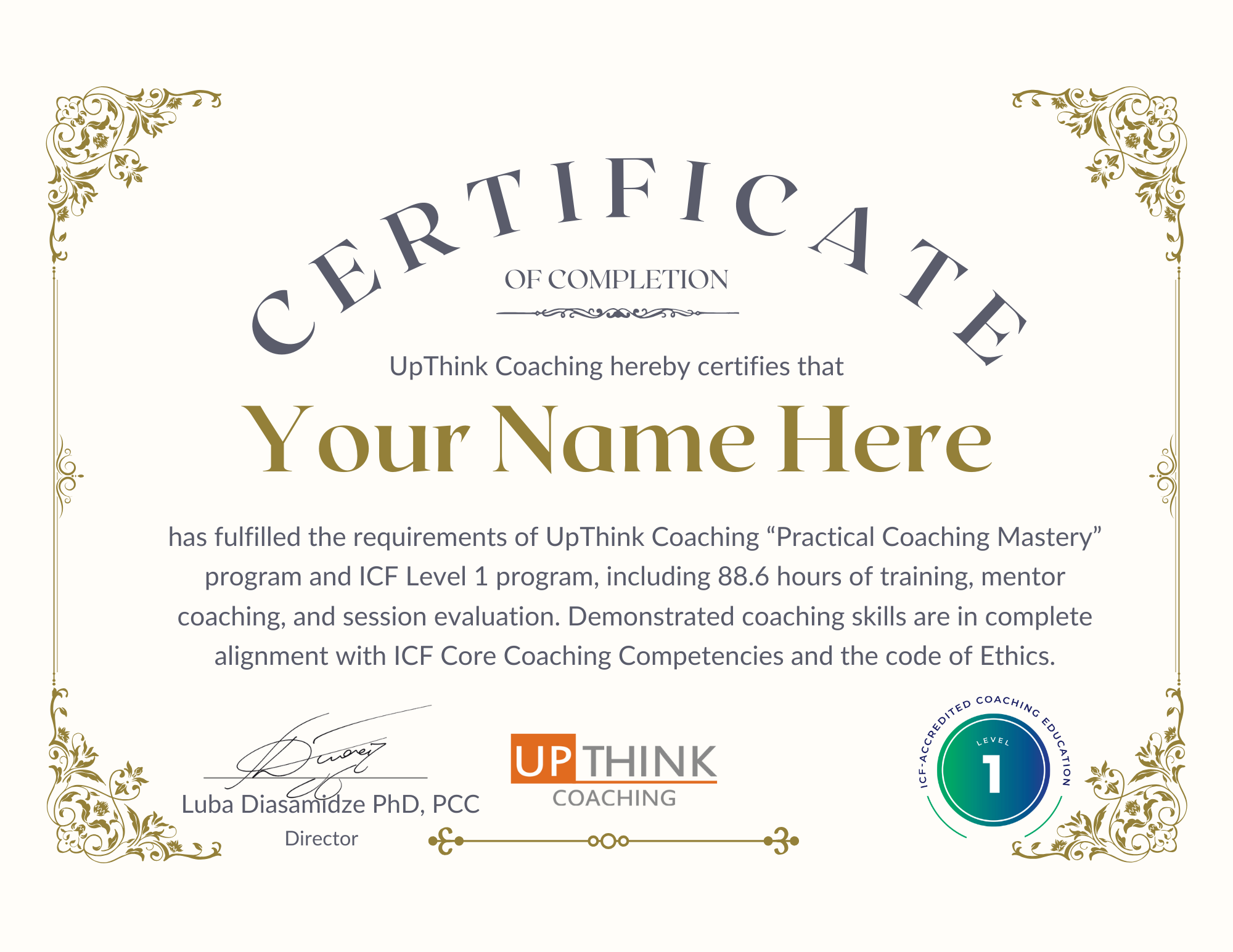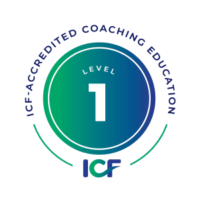
Overview
“Practical Coaching Mastery” (ICF Level 1) program fully prepares you to become a competent coach. Our experienced international team of instructors will teach you to work effectively with various coaching niches and requests.
The program is based on the ICF Core Competency model, coaching psychology, evidence-based coaching and cognitive-behavioral science. It includes a broad range of theories and frameworks that are important for a modern coaching practitioner, such as Emotional Intelligence, Systems Theory, Creative Approaches in Coaching, Intercultural Coaching, Change Theories, Strength-based Coaching, etc.
The course offers multiple opportunities for new coaches to excel through practice and reflection. During the course we will support your first steps in developing your coaching practice.
Start dates:
- Offline (Shanghai): April 12th, 2025
- Online (English): November 10th, 2025
- Experiential workshops to deliver the Core Curriculum
- Group and individual mentorings
- Observed peer practice
- Group supervision
- Participants’ independent coaching practice
- Coaching practice/business development tips and resources
- Alumni support.
The program is offered in two formats: online and face-to-face in China.
Languages: Our programs run in English and Chinese.
We can also deliver in-house coach training programs for your organization.
Download detailed program curriculum
The program is suitable for a wide range of audience – organizational leaders and team leaders, HR and People and Learning Development Professionals, entrepreneurs and business owners, educators, people in the career transition and aspiring coaches.
There are no prerequisites for taking this program. Participants must be at least 18 years old.
- Learn and apply the coaching gold standard in both work and life contexts successfully.
- Pave the way to your ACC credential with ICF.
- Understand different coaching approaches and start to shape your individual coaching style.
- Understand the nature of change and transformation. Be able to facilitate a lasting change for others.
- Significantly improve communication skills and self-leadership.
- Enhance growth mindset and thinking in opportunities.
- Help other people understand their inner barriers and how to resolve them.
- Understand how mindset works and learn to create perspective shift for others.
- Take the first steps in developing your coaching practice and coaching your first clients.
ICF Level 1 Program Investment:
One-time payment:
- Super early bird (before Feb 20/March 20, 2024): 24600 RMB ($3,450 USD)
- Early bird (before March 20/April 20, 2024): 25800 RMB ($3,620 USD)
- Standard: 27,000 RMB ($3,790 USD)
Pay-as-you-go:
- 7,425 RMB ($1,042 USD) per Module – 4 monthly installments.
If you want to pay in another currency, the exchange rate on the date of the payment will be used to convert the tuition amount.
This Student /Participant Enrollment agreement contains the policies governing our programs and certification requirements.
After reviewing this documentation, if in agreement, you are asked to sign and date the agreement. Your signature reflects your agreement to the policies and requirements upheld by UpThink Coaching.
Program Requirements
There are no prerequisites for taking this program. Participants must be at least 18 years old. Prior to earning certification, applicant understands and agrees to complete the course work, attend all hours of training and fully participate, complete research and presentation, peer practice, complete the coaching practicum, submit all logs and papers, and demonstrate the ICF Coaching Competencies. Participant follows the schedule set by the Training Provider. A certified professional coach certificate is issued upon completion of the program requirements. After successful oral examination demonstrating ICF coaching competencies at the ACC or PCC level, participant will receive a certificate with the programs approval for ICF Credential Application. Student/ Participant agrees and understands that any opportunity for make-up will incur additional fee, unless prior arrangement is made with program director, mentors or facilitators.
Training Provider’s Responsibilities:
- Provide professional coach training in alignment with ICF Core Competency Model and ICF Code of Ethics.
- Provide a structured, fun, mutually supportive and engaging learning environment.
- Ensure training standards are communicated, met and upheld.
- Be available to support the student process.
- Provide accurate and correct information on policies and procedures.
- Provide opportunities for each student to grow, stretch and receive individualized training and support.
- Provide coach training by credentialed coaches and provide high-caliber coaching resources.
Participation and Course Engagement
- Our courses are designed to be interactive and experiential. It is therefore an expectation that you participate in both synchronous and asynchronous course activities, including dialogue with the course instructor and peers, mock and peer and assigned coaching activities, and experiential learning exercises. If you are unable to participate in an activity, please inform your instructor as soon as possible. Please refer to the code of conduct for additional details.
- Participants agree to keep their cameras on and not go off camera for more than 5 minutes. Participants will not multitask during classes.
- Participants will periodically coach in the training. Participants agree to serve in the role of client.
- Participants agree to receive feedback from peers and the program’s facilitators and evaluators.
- Participants agree to have these sessions recorded for future training and accreditation purposes.
Code of Conduct
- Participants are expected to conduct themselves in a professional manner during all sessions. This includes, but is not limited to:
- Arriving on time to all sessions.
- Having your camera on for virtual live sessions.
- Participating fully in all sessions and mentor coaching sessions. This includes being prepared for the session, involving yourself in discussions and activities, assuming responsibility for your learning, and contributing to the learning of others.
- Engaging in discussions with integrity and honesty.
- Being respectful of your fellow participants and instructors, including silencing your cell phone, not texting, and other disruptive behaviors. Unethical and disrespectful behavior will not be tolerated. We keep the right to suspend or cancel a participant’s enrollment in a program at any time, should they demonstrate unethical or demonstrate disrespectful behavior to a facilitator, mentor, coach or student/ participant, without a refund, if the refund deadline has passed. You can refer to ICF Code of Ethics here
- Keeping information that you get as a coach in a practice coaching session confidential
Attendance
- In order to provide you with the minimum required training hours for certification, it is important that you are present at 95% of the sessions.
- If you have an emergency or become ill and are not able to attend a coaching session, please see our illness policy.
Certification Eligibility
Completion of education requirements is required but does not guarantee that a trainee will pass an internal written evaluation & final oral evaluation. Participants must complete the internal learning requirements of the program. Participants must complete the asynchronous portion of the learning requirements. Participants must comply with all policies related to absenteeism and make up assignments. Participants must achieve a passing of their final oral exam and written essays submitted to our team f or review.
Personal Information:
Participants agree to allow use of private contact information for internal communication only. Participant’s email and phone number will be used to contact them directly as it relates to coaching education. Participants may at times receive email updates regarding the program/cohort the participant has been assigned to or for future training opportunities within the company.
Participants agree to have their name submitted to ICF for the purpose of ongoing accreditation approval and audits. Participants agree to have their name on a certificate and distributed to them, pending his/her successful completion of the training.
Release of Liability:
- I understand and agree to waive and release any and all claims against the organization and faculty of personal injury or loss of or damage to property damage arising from participation in the program.
- I understand and agree that either virtual or in-person trainings may be recorded. I give my permission to share these recordings, in part or in full, with members of my cohort and faculty, as well as submittal to International Coach Federation (“ICF”) for ongoing accreditation renewals and audits.
- Material and Content Warning: We are committed to providing quality materials through web-based formats. While we select formats and companies to deliver these services that are reputable and reliable, we cannot guarantee that any materials, or services will be glitch free, or virus free. All use of our online services is at your own risk.
- We are committed to teaching, mentoring, and developing each student according to their goals. The tools, techniques and models taught are not a substitute for your own discretion, independent judgments, and life experience.
- Legal Disclaimer: The information given on marketing and best business practices is not intended to be legal advice, nor is it a substitute for professional legal counsel. Seek the appropriate legal counsel for your situation or business practices.
- Satisfaction: You are responsible for researching programs prior to enrollment. Enrollment and participation represent your commitment to your goals with UpThink Coaching as your school of choice.
- Copyright: By participating in our programs you agree to respect all Trademarks, Copyrights and Confidentialities. All materials, manuals, content, recordings, videos, pictures and media are all Copyright © of UpThink Coaching, All Rights Reserved. Permission will be given to adapt coaching tools for your use on a tool-by-tool basis. Program content, processes, concepts, materials, or techniques are not permitted to be used, sold, adapted, repackaged, altered, or marketed for your coaching purposes outside of class, without written permission from UpThink Coaching.
To proceed and sign the agreement, please follow this link:
Partial Completion Policy
UpThink Coaching will offer credit for partial completion of a course. A statement of attainment is awarded with the number of training hours completed. If you are interested in receiving partial credit for a course in which you are currently or were previously enrolled, please contact the Director of Coach Education no more than (14) days after the course has ended. Please send us the information about the course in which you were enrolled and the number of credit hours you are eligible for. If approved, you will receive a statement of attainment indicating the number of training hours completed.
Transfer of Credit Policy
If a student has completed ICF-accredited training from a different program, UpThink Coaching will accept those training hours when they provide proof of their completion, and it is verified. This may apply to parts of Level 1 program and Level 2 program.
Illness Policy
The curriculum for UpThink Coaching coach training program is carefully designed to meet the contact hours required for ICF certification. Full participation and 95% workshop time attendance are required to complete the program. In the event of an untimely illness that prevents attendance and participation, you will need to contact the Director of Education as soon as possible and discuss possible options for course completion. If you miss between 2 and 4 hours, you will be expected to complete the session materials, review the session recording (for online courses), and complete a coaching session outside the live session to make up for the missed session.
If you need to miss more than 4 hours of the course, you will have the option to work with the instructor to cover the missed material at your own expense or transfer to the next cohort free of charge. If you miss mentor coaching hours, you will need to arrange and pay for individual mentor coaching sessions to accumulate the required 10 hours of mentor coaching to satisfy the ICF requirements.
Payment and Refund Policy
All registrations are secured on a first-come, first-served basis. Participants pays 100% of the program fee prior to the program start according to their chosen schedule. UpThink Coaching offers one-time and pay-as-you-go fee structures.
Participants who plan their learning in advance, can use super early bird (two months before the course starts or earlier) and early bird (one month before the course starts) offers.
Because of the nature of securing and committing the time of faculty, incurred planning, lost opportunity, and other related costs, any cancellation (without incurring a fee), requires 30-day advance notice to UpThink Coaching.
- Any cancellation between 8-29 days before the first scheduled course date will be billed at 50% of the total fee.
- Any training days canceled 7 days before the scheduled date or later will be billed at 100% of the total fee.
- If the Customer doesn’t come to take the course without notice, the course will be billed at 100% of the total fee.
Intellectual Property Policy
By participating in our programs you agree to respect all Trademarks, Copyrights and Confidentialities. All materials, manuals, content, recordings, videos, pictures and media are all Copyright © of UpThink Coaching, All Rights Reserved. Permission will be given to adapt coaching tools for your use on a tool-by-tool basis. Program content, processes, concepts, materials, or techniques are not permitted to be used, sold, adapted, repackaged, altered, or marketed for your coaching purposes outside of class, without written permission from UpThink Coaching.
Disability/Discrimination/DEIJ Statement
We recognize the utmost importance of creating an inclusive and equitable coaching education environment that upholds the principles of respect, diversity, and fair treatment for all individuals, regardless of their background, abilities, or identities.
We are committed to ensuring equal access and opportunities for individuals with disabilities within our coaching education program(s). We acknowledge that diverse abilities enrich the coaching community and aim to create an inclusive and supportive environment for all participants, including those with disabilities. Our materials and coaching methodologies are designed with accessibility in mind, and we continuously seek feedback from participants to identify and address any barriers they may encounter.
We firmly stand against discrimination of any kind and affirm that all individuals shall be treated with dignity and respect within our coaching education program(s). We do not discriminate on the basis of race, color, ethnicity, national origin, gender, gender identity, sexual orientation, age, religion, disability, or any other legally protected characteristic. Our commitment to non-discrimination extends to all aspects of our coaching education program(s), including admissions, coach training process, community engagement, and the provision of educational resources.
We recognize the transformative power of diversity and understand that an inclusive coaching community fosters growth and innovation. We actively seek to create an environment that celebrates the diversity of backgrounds, experiences, and perspectives among our participants, faculty, and staff. Our coaching education program(s) integrate DEIJ principles, and we endeavor to develop coaching practitioners who are culturally intelligent and DEIJ competent and able to embrace diversity as a strength in their coaching practice.
We are dedicated to a continuous learning process and consistently evaluate and improve our coaching education program(s) in alignment with DEIJ values. We encourage open dialogue, feedback, and critical self-assessment to address any potential biases and enhance our commitment to promoting diversity, equity, inclusion, and justice within our program(s).
Grievance Policy
We recognize the importance of providing a fair and transparent process for addressing any complaints or grievances that may arise within our coaching education program(s) and are committed to upholding the rights and well-being of our participants.
Complaints and grievances can include issues related to the training process, instructor behavior, facilities, administrative processes, discrimination, harassment, and other relevant matters.
Students are encouraged to raise their concerns promptly. Complaints can be submitted through designated communication channels to UpThink Coaching. Those channels include email, online forms, or in-person discussions with course coordinators and company management. The complaint should include the following details:
- Student’s name and contact information
- Specific nature of the complaint
- Date, time, and location of the incident (if applicable)
- Any supporting evidence, if available
Upon receiving a complaint, UpThink Coaching will designate a responsible staff member to conduct an initial review. The staff member will assess the complaint’s validity, gather relevant information, and initiate a resolution process. If the complaint is deemed serious or potentially disruptive, an expedited process may be implemented.
If the initial resolution is not satisfactory to the client, they can initiate a formal grievance process. A formal written grievance should be submitted, detailing the complaint and the steps taken so far. The designated staff member will conduct a thorough investigation, interviewing relevant parties and collecting evidence as needed.
In cases where the complaint involves serious misconduct, discrimination, or harassment, UpThink Coaching reserves the right to suspend the accused individual from the course temporarily pending the outcome of the investigation. The suspended individual will be provided an opportunity to present their side of the story.
To ensure that course participants can stay on track despite course suspension, UpThink Coaching will implement a course resumption plan:
- If a course is suspended, UpThink Coaching will provide affected participants with information about the duration of the suspension and the plan for course resumption.
- Alternative study materials, assignments, or online resources may be provided to help participants continue their learning during the suspension.
- UpThink Coaching will communicate regularly with participants to keep them informed about the investigation’s progress and the anticipated course resumption date.
Once the investigation is complete, UpThink Coaching will communicate the findings and any actions taken to both the complainant and the accused. If necessary, steps will be taken to address the issue and prevent future occurrences.
All parties involved in the complaint/grievance process are expected to maintain confidentiality to protect the privacy of individuals and the integrity of the process.
UpThink Coaching strictly prohibits any form of retaliation against participants who file complaints or participate in the grievance process.
UpThink Coaching will maintain records of all complaints, investigations, resolutions, and actions taken for a specified period of time. We will periodically review this policy and its effectiveness to ensure that complaints and grievances are handled promptly, fairly, and in accordance with best practices.
By implementing this Complaint/Grievance Policy, UpThink Coaching aims to foster a respectful and conducive learning environment while providing students with a fair and efficient process for addressing their concerns.
Ethical Marketing Agreement
At UpThink Coaching, we are dedicated to upholding the highest standards of ethics and integrity in all aspects of our operations, including marketing. Our commitment to ethical marketing is deeply rooted in the principles outlined by the International Coach Federation (ICF) Code of Ethics.
Competence: Our marketing content will accurately represent our expertise, experience, and the quality of our coach training programs. We will avoid making exaggerated claims or portraying ourselves as experts in areas where we do not possess the necessary competence.
Confidentiality: Respecting confidentiality is paramount in both coaching and marketing. We will protect the personal information of our clients, trainees, and partners. Any testimonials or case studies shared will be done so with the explicit consent of those involved, while maintaining their anonymity and privacy.
Respect for People’s Rights and Dignity: Our marketing efforts will be respectful and considerate of the diversity, culture, and individuality of all stakeholders. We will refrain from using language or imagery that may be offensive, discriminatory, or inappropriate.
Responsibility: We are committed to providing accurate and up-to-date information in our marketing materials. We will promptly rectify any inaccuracies and respond to inquiries with honesty and professionalism. Our responsibility extends to ensuring that our training programs align with the promises made in our marketing content.
Professionalism: Our marketing will reflect the professionalism that is expected of a reputable coach training provider. We will avoid any tactics that could be seen as exploitative, sensationalist, or manipulative. Our communication will be respectful, courteous, and reflective of the coaching industry’s best practices.
Integrity: We pledge to communicate transparently and truthfully in all our marketing materials. We will provide accurate and honest information about our coaching programs, methodologies, and outcomes. Our marketing messages will reflect the genuine value and benefits that our training provides to aspiring coaches, without overpromising.
By adhering to these principles, as set forth by the ICF Code of Ethics, we strive to not only meet the expectations of ethical marketing but to exceed them. We aim to build trust, credibility, and a positive reputation within the coaching community and among our stakeholders. Our commitment to ethical marketing underscores our dedication to nurturing the growth and success of aspiring coaches with integrity and authenticity.
Statement on Ethics, Integrity and Transparency
At UpThink Coaching, we are committed to upholding the highest standards of ethics, integrity, and transparency in all aspects of our operations. Our dedication to these principles is deeply rooted in the values of the International Coach Federation (ICF) Code of Ethics, which serves as the cornerstone of our commitment to the coaching profession.
Ethics: We adhere unwaveringly to the ethical principles set forth by the ICF Code of Ethics. Our coaches and training programs prioritize the well-being and best interests of program participants, faculty members and other staff involved above all else. We establish clear boundaries, recognize and avoid conflicts of interests and maintain a professional relationship that respects the confidentiality and privacy of those we serve.
Integrity: Integrity is at the core of our business practices. We are dedicated to presenting ourselves and our training programs honestly and authentically. We do not make exaggerated claims about outcomes or portray ourselves as experts in areas where we lack the requisite competence.
Our commitment to integrity extends to how we interact with potential participants. We provide accurate and comprehensive information about our training programs, including curriculum, accreditation status, and expected outcomes. This aligns with the ICF’s principle of competence, ensuring that our participants are well-informed about the value they can expect from our training.
Transparency: Transparency is essential in building trust with our participants and stakeholders. We are open about our training methodologies, pricing, and any affiliations that might influence our offerings. Our marketing materials and communications are truthful, and we provide timely responses to inquiries, addressing questions and concerns directly.
Much like the ICF Code of Ethics emphasizes responsibility, we take the initiative to promptly address any inaccuracies or misrepresentations in our marketing materials. This commitment to transparency enhances our credibility and fosters an environment of open communication.
As the organization, we hold ourselves accountable to the same high standards we expect from our coaches, ensuring that our training programs not only equip participants with the necessary skills but also instill a deep sense of responsibility, integrity, and transparency.
Examples from various coach training organizations further reinforce the significance of these principles in the coaching field. By aligning our practices with the ICF Code of Ethics and drawing inspiration from other ethical coaching organizations, we collectively contribute to the advancement of the coaching profession and the betterment of individuals and communities we serve.
Organizational contact list:
Luba Diasamidze PhD, PCC: Luba@upthinkcoaching.com
+8613416251564
Luba@upthinkcoaching.com
Established Business Enterprise:
UpThink Coaching Co., Ltd. (广州尚念教育咨询有限公司)
Address: office C12, bld. 55, TiYu West Street, Guangzhou, Guangdong, China.
Business License Number: 91440101MA5D0KN5XB
Organization Owner:
Liubov (Luba) Diasamidze PhD., PCC

Shanghai. Spring 2025. Face-to-face. Delivery Language: English. IN PROGRESS
Face-to-face workshop dates:
- Module 1: April 12th and April 13th, 2025. Class time: 10am – 6pm
- Module 2: May 24th and May 25th, 2025. Class time: 10am – 6pm
- Module 3: July 5th and July 6th, 2025. Class time: 10am – 6pm
Additional online sessions (peer practice, group mentorings, group supervision). Class time: from 7:30pm to 9:30pm China time (GMT +8).
- 16/04, 23/04, 7/05, 14/05, 21/05, 28/05, 4/06, 9/06, 11/06, 18/06, 25/06, 2/07.
Online, November 2025. Delivery Language: English
Class time: from 7:30pm to 9:30pm China time (GMT+8)
- Module 1: 10 Nov, 13 Nov, 17 Nov, 20 Nov, 24 Nov, 27 Nov, 1 Dec, 4 Dec, 8 Dec, 11 Dec;
- Module 2: 15 Dec, 18 Dec, 22 Dec, 5 Jan, 8 Jan, 12 Jan, 15 Jan, 19 Jan, 26 Jan, 29 Jan, 2 Feb;
- Module 3: 5 Feb, 9 Feb, 12 Feb, 23 Feb, 26 Feb, 2 Mar, 5 Mar, 9 Mar, 12 Mar, 16 Mar, 19 Mar, 23 Mar.


